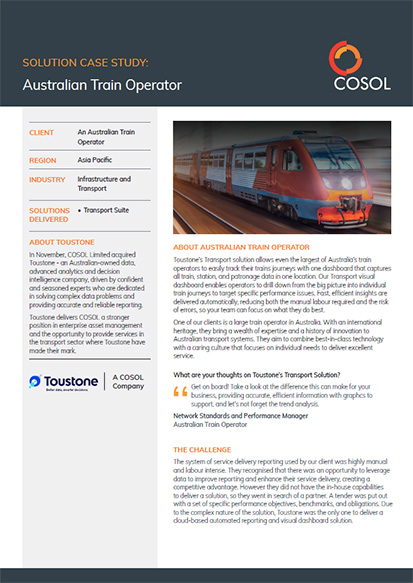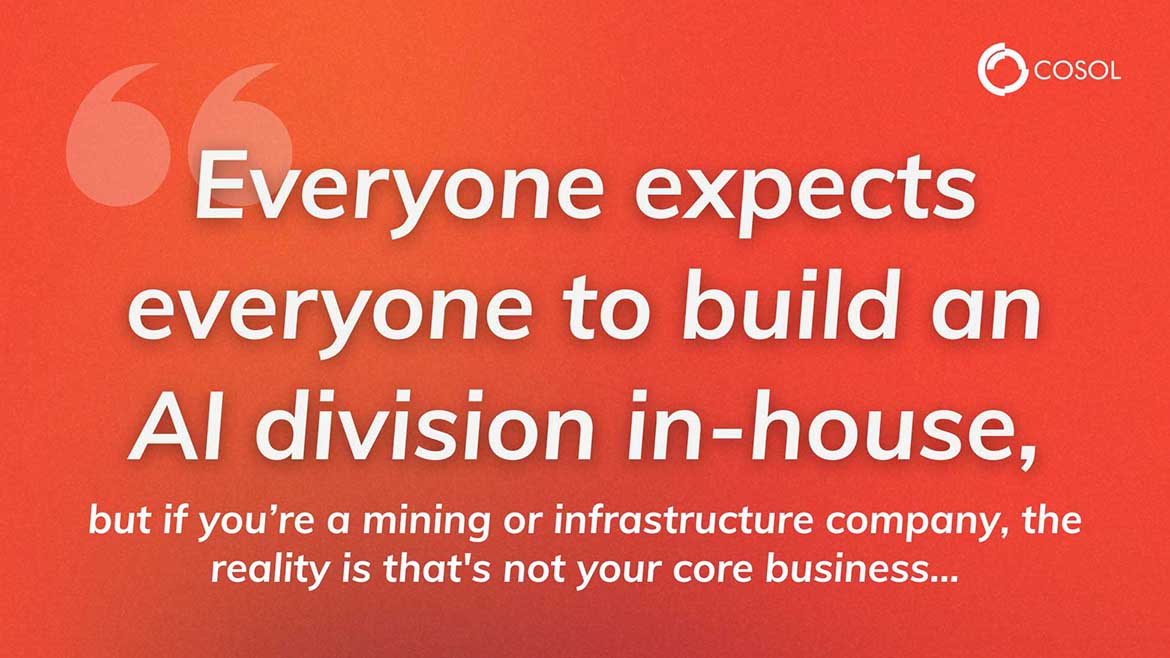At a glance
- Start small with targeted, high-value AI projects
- Build business capability alongside technical expertise
- Partner with experienced AI and data specialists
- Treat AI as a long-term strategic transformation
Article by Scott McGowan,
Managing Director and CEO of COSOL
The question I hear most from executive leaders in asset-intensive industries is: “Where do we even begin with AI?”
It’s a fair question. Boards are pushing for innovation. AI is dominating every headline. And yet many organisations still feel lost, unsure of how to translate buzz into business value.
The Wrong Starting Point: AI Looking For A Problem
Too often, companies create an “AI division” without a clear charter, driven by the board’s desire to “do something with AI”. But without defined business problems to solve, these teams end up spinning their wheels.
Start Small. Start Smart.
AI adoption should begin by solving a discrete, high-value problem. For example, if you are in mining, utilities, transport, defence or in any asset-centric government operation, ideal starting points include:
- Work order administration
- Master data creation
- Condition-based maintenance triggers
These areas are plagued by inefficiencies and offer a clear return on investment.
Small wins will equate to big wins, quicker than you realise. One COSOL customer a major Australian rail operator - successfully implemented an accurate, real-time energy forecasting and monitoring system that reduced carbon emissions without affecting ride times.

Build Business Capability, Not Just Technical Capability
This is not just a tech problem. It’s a business transformation one. Organisations should embed AI within a cross-functional strategy led by experienced and reliable data and AI partners, like COSOL, who understand both the technology and the operational environment.
Think of this like ESG. It didn’t take hold just because boards demanded it. It gained traction because regulations, stakeholder pressure, and evolving values made it necessary. Similarly, AI must be treated as a long-term strategic capability - not a temporary initiative.
But I want to emphasise the word partnership. I was recently quoted in IT Wire saying:

Redefine Roles, Rethink The Operating Model
Integrating AI isn’t just about plugging in a tool. It requires redefining roles, operating models, and even job descriptions.
Learn, Fail, Evolve
There will be false starts, and that’s okay. The organisations that succeed will be the ones that treat AI as an evolving capability - learning quickly, adapting processes, and continually expanding where AI adds value.
Where AI Fits At COSOL
At COSOL, AI is not a side project – it runs through our AMaaS solutions. Maintenance scheduling, planning, work management, data governance, master data, and our AI Asset Lifecycle solution all rely on it. But none of it matters without trusted data. That’s the foundation, and it’s non-negotiable.

About Scott McGowan
What is the future of asset management in Australia, and what role does AI play?


